Up¾at 3 Teacher's Book podrecznik nauczyciela plus odpowiedzi ,testy,klucz answer key Page 097
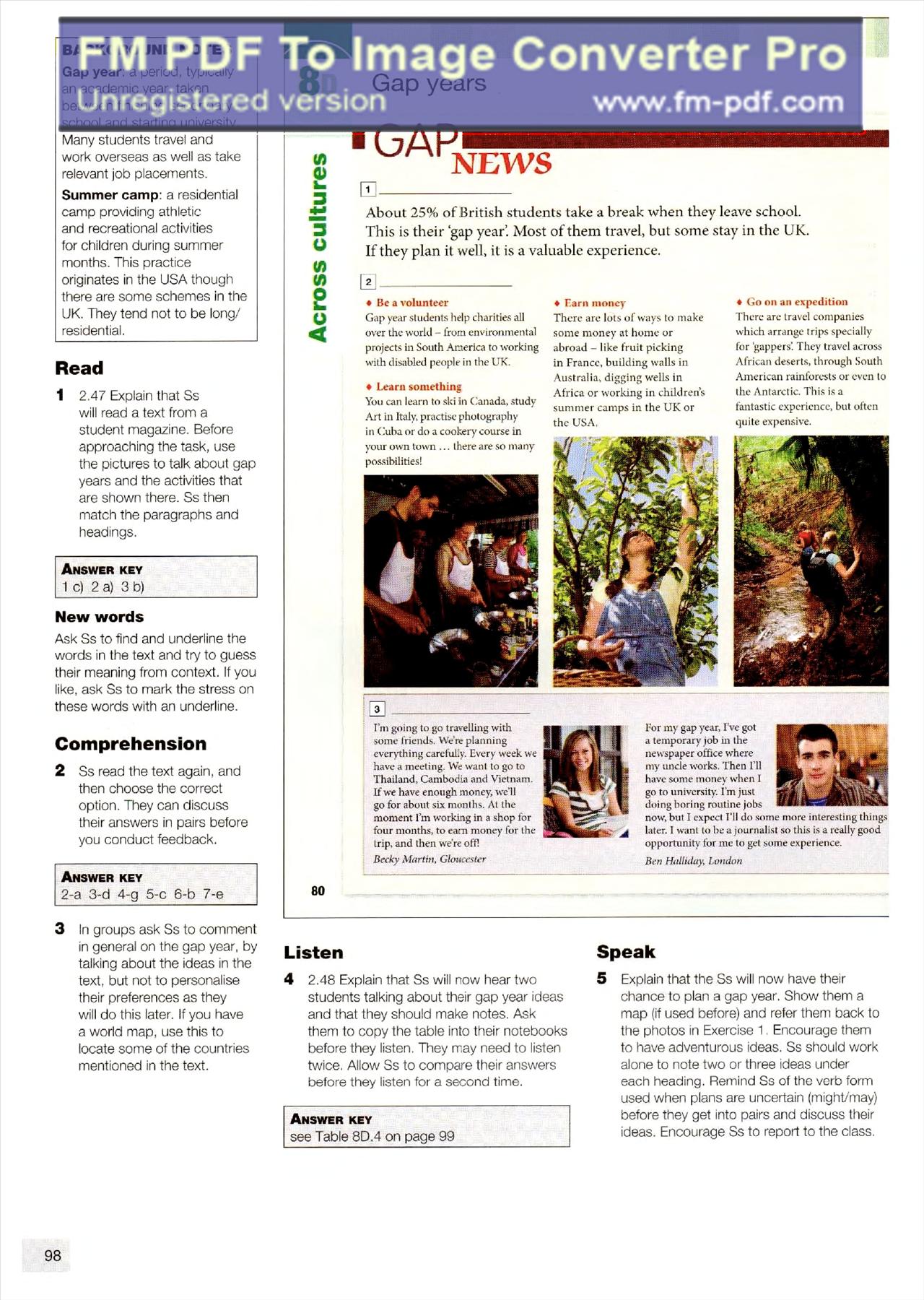

Gap years
Many students travel and work overseas as well as take relevant job placements.
Summer camp: a residential camp providing athletic and recreational activities for children during summer months. This practice originates in the USA though there are some schemes in the UK. They tend not to be long/ residential.

O
<
n:-
About 25% of British students take a break when they lcave school. This is their ‘gap year’. Most of them travel, but some stay in the UK. If they plan it well, it is a valuable experience.

♦ Be a volunteer
Gap year students help charities all over the worki from environmental projects in South America to working with disabled people in the UK.
Read
1 2.47 Explain that Ss
will read a text from a student magazine. Before approaching the task, use the pictures to talk about gap years and the activities that are shown there. Ss then match the paragraphs and headings.
Answer key
1 c) 2 a) 3 b)_
New words
Ask Ss to find and underline the words in the text and try to guess their meaning from context. If you like, ask Ss to mark the stress on these words with an underline.
Comprehension
2 Ss read the text again. and then choose the correct option. They can discuss their answers in pairs before you conduct feedback.
Answer key
2-a 3-d 4-g 5-c 6-b 7-e
80
♦ Learn soniething
You can learn to ski in Canada, study Art in Italy. practise photography in C !uba or do a cookery course in your own town ... there are so many possibilities!
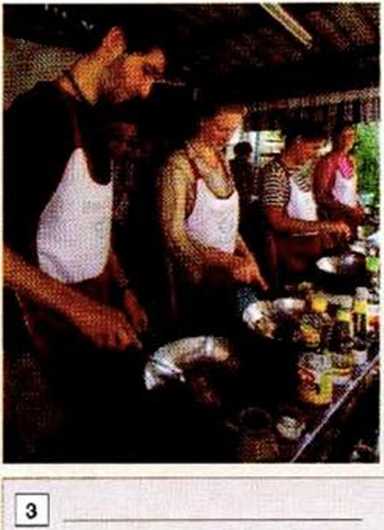
Fm going to go travelling with some Iriends. Wereplanning cverything carcfuily. Every week we have a meeting. We want to go to Thailand, Cambodin and Yictnam. If we have enough money, wc‘11 go for about six monlhs. Al the moment Fm working in a shop for four months, to eam money for the trip. and then vve're offl Becky Martin, Gloucester
♦ Fam nioney
There are lots ofways to make some money at home or ahroad - like fruit picking in France, building walls in Australia, digging wells in Africa or working in childrens summer camps in the UK or the USA.
♦ Go on an expedition There are travel companies which arrange trips specially for ‘gappers’. They travel across African deserts, through South American rainforests or cven to the Antarctic. This is a tantastic cxpericncc, but often quite expensive.
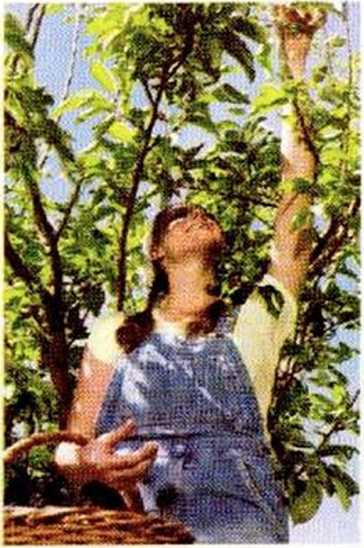
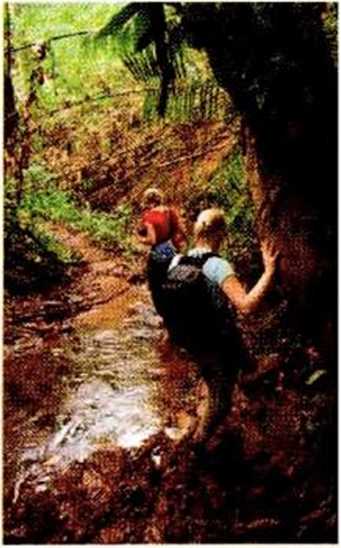
I;or my gap year, I’vc got a temporary job in the news paper oifice where my unde works. 'I hen 111 havc some money when I go to univcrsity. Fm just doing boring routine jobs now, but I expcct Fil do some morę interesting things later. I want to be a journalist so this is a rcaily good opporhmity for mc to gel some experience.

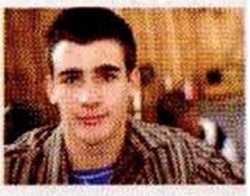
Ben Halliday, London
3 In groups ask Ss to comment in generał on the gap year, by talking about the ideas in the text. but not to personalise their preferences as they will do this later. If you have a world map, use this to locate some of the countries mentioned in the text.
Listen
4 2.48 Explain that Ss will now hear two students talking about their gap year ideas and that they should make notes. Ask them to copy the table into their notebooks before they listen. They rray need to listen twice. Allow Ss to compare their answers before they listen for a second time.
Answer key
see Table 8D.4 on page 99
Speak
5 Explain that the Ss will now have their chance to plan a gap year. Show them a map (if used before) and refer them back to the photos in Exercise 1. Encourage them to have adventurous ideas. Ss should work alone to notÄ™ two or three ideas under each heading. Remind Ss of the vcrb form used when plans are uncertain (might/may) before they get into pairs and discuss their ideas. Encourage Ss to report to the class.
98
Wyszukiwarka
Podobne podstrony:
Up?at 3 Teacher s Book podrecznik nauczyciela plus odpowiedzi ,testy,klucz answer key Page 118 £H or
Up?at 3 Teacher s Book podrecznik nauczyciela plus odpowiedzi ,testy,klucz answer key Page 001 FM PD
Up?at 3 Teacher s Book podrecznik nauczyciela plus odpowiedzi ,testy,klucz answer key Page 005 Conte
Up?at 3 Teacher s Book podrecznik nauczyciela plus odpowiedzi ,testy,klucz answer key Page 006 Conte
Up?at 3 Teacher s Book podrecznik nauczyciela plus odpowiedzi ,testy,klucz answer key Page 009 FM PD
Up?at 3 Teacher s Book podrecznik nauczyciela plus odpowiedzi ,testy,klucz answer key Page 010 : Rea
Up?at 3 Teacher s Book podrecznik nauczyciela plus odpowiedzi ,testy,klucz answer key Page 012 Large
Up?at 3 Teacher s Book podrecznik nauczyciela plus odpowiedzi ,testy,klucz answer key Page 013 u mfo
Up?at 3 Teacher s Book podrecznik nauczyciela plus odpowiedzi ,testy,klucz answer key Page 014 selec
Up?at 3 Teacher s Book podrecznik nauczyciela plus odpowiedzi ,testy,klucz answer key Page 015 MMMMM
Up?at 3 Teacher s Book podrecznik nauczyciela plus odpowiedzi ,testy,klucz answer key Page 018 Sugge
więcej podobnych podstron